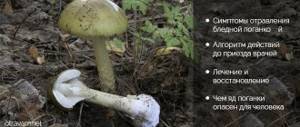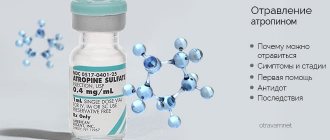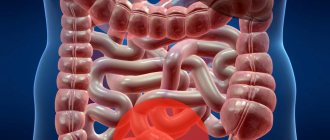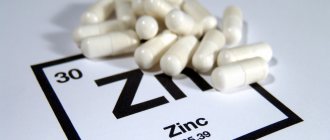Poisoning with milk and milk-based products is one of the most common types of food poisoning. Milk ranks second on the list of the most dangerous products (subject to improper storage and insufficient heat treatment, if necessary), second only to fish and meat.
If a person is poisoned by fermented milk products or cow's milk, a favorable prognosis for recovery will depend on the speed of first aid and timely treatment. People who include dairy products in their daily diet need to know the symptoms and causes of this type of foodborne illness and be able to provide first aid if someone close to them needs it.
Conditions for the production of milk products
Milk is an integral part of the diet, a source of easily digestible calcium and protein. During processing, it turns into tasty dietary food (kefir, cottage cheese, etc.). The production of perishable dairy products requires strict adherence to sanitary rules and technological standards. In factory conditions, autoclaves are used that heat the product to a high temperature, destroying pathogenic microorganisms.
To prevent food poisoning from dairy products, two types of technological processes are used:
- Pasteurization at 60–90°C. The technique is capable of destroying only certain types of bacteria and fungi. The spores remain alive and germinate when the temperature drops. To destroy them, stage-by-stage pasteurization with cooling cycles is used. As a result, only the bacteria necessary for the production of fermented milk products - fermented baked milk, kefir, cottage cheese, butter, and cheeses - remain alive.
- Ultrapasteurization (UHT). A modern method of processing milk, allowing to increase its shelf life. The milk is heated in 4 seconds to 137 °C, after which it is cooled and packaged. After UHT, it can be stored for 3 to 8 months, depending on the density of the container layers.
Pasteurized milk is used to produce a whole line of products with a unique taste and varying shelf life.
When should you not drink dairy products?
In a number of situations in case of poisoning, milk is absolutely contraindicated and cannot be used even during the post-reactive period of recovery of the body:
- Intoxication with gasoline, dichloroethane, petroleum derivatives , organic acids, organophosphorus compounds;
- Any types of food intoxication , mainly of a bacterial nature;
- Alcohol intoxication in the acute stage;
- Lipid metabolism disorders in humans;
- Nephritis of any kind, especially edematous and albuminuric;
- Severe allergic reaction to lactose;
- Low stomach acidity;
- The presence of gastritis or ulcers in the active stage;
- Taking a number of medications necessary for primary treatment, the effect of which may be reduced, enhanced, or in any way changed by consuming dairy products.
Reasons for the development of intoxication
Milk and products made from it are a favorable environment for the proliferation of pathogenic and opportunistic bacteria (Escherichia coli, staphylococci, Klebsiella, etc.). Cheese, cottage cheese, and yoghurts, which are not subject to heat treatment before consumption, spoil especially quickly in summer. When foods infected with pathogenic microorganisms enter the digestive tract, food poisoning (PTI) develops.
The following factors contribute to the occurrence of intoxication:
- consumption of raw, unboiled milk purchased at the market;
- lack of proper control at production;
- pustular diseases among catering staff;
- improper storage and transportation of fermented milk products;
- using milk from a sick cow;
- consumption of the product after the expiration date;
- improper production of kefir, cheese, mayonnaise at home.
Symptoms of poisoning with fermented milk products
Acute poisoning from dairy products develops 2-4 hours after eating, but can begin within 30-40 minutes.
The time at which symptoms appear depends on the type of bacteria that caused the foodborne illness.
If staphylococci or other pathogenic flora enter the stomach with food, symptoms of poisoning appear:
- nausea;
- frequent vomiting, after which temporary relief occurs;
- watery, foamy, loose stools with mucus 10-15 times a day;
- stomach ache;
- decreased blood pressure associated with loss of fluid and electrolytes;
- severe weakness;
- elevated temperature (37.5–39.0°C);
- increased heart rate;
- muscle cramps due to loss of electrolytes;
- fainting.
Poisoning with milk or sour cream lasts 3-7 days. A mild course of the disease is typical for eating expired products or those that have been stored without refrigeration for more than 2 hours. Sources of intoxication include condensed milk, cottage cheese, and milkshake.
Ice cream poisoning often occurs. A favorite delicacy is harmful to health if it is consumed after the expiration date or the technology for its production is violated. An expired fermented milk drink of the Turkic peoples, katyk, can also cause PTI.
In children, poisoning from dairy products is more acute. Diarrhea, vomiting, and fever occur, for example, after eating cream cake. Therefore, you should not give your child such treats in the summer. Poisoning of children with fermented milk products is accompanied by rapid dehydration. Therefore, if your baby has diarrhea, you need to consult a doctor.
Food poisoning and milk
Since people often eat low-quality food, the question of whether milk is effective for food poisoning seems extremely relevant.
People's opinions on this matter vary. Some believe that in case of mild poisoning it is useful to drink a fresh drink, while others are categorical and do not allow such experiments on the body. It must be remembered that this product will help relieve the patient from heartburn and an unpleasant burning sensation in the stomach, but it is not capable of influencing a quick recovery. In cases with severe symptoms, doctors do not recommend consuming dairy products until complete recovery. This is due to two reasons:
- The drink causes severe irritation of the gastrointestinal mucosa, which leads to an increase in symptoms. The patient may experience severe vomiting and bloating.
- Milk puts additional stress on a weakened body and complicates digestive processes. This is due to its fat content and its constituent elements.
Thus, consuming milk and its derivatives after poisoning can negatively affect the functioning of the gastrointestinal tract. However, if such intoxication only caused heartburn and burning, then taking the drink will help cope with these minor symptoms, provided that it is of high quality and fresh.
Infections transmitted by milk and milk-based products
Milk taken from sick cows is a source of human infection.
Many infections are transmitted to humans through raw milk. If the drink has not been subjected to heat treatment, pathogenic microorganisms multiply in it. When they enter the human gastrointestinal tract, they cause various diseases.
Signs of intoxication with milk products differ for different infections:
- Brucellosis is contracted by drinking unboiled milk. The disease is manifested by joint pain, severe sweating,
- Listeria enters the body from raw or improperly pasteurized dairy products. Infection is indicated by diarrhea, muscle and joint pain.
- Poisoning with fermented baked milk, especially expired milk, can be accompanied by infection with Shigella and the development of dysentery. The disease is manifested by repeated loose stools mixed with blood, cramping abdominal pain, and fever.
- Salmonellosis is transmitted by consuming soft cheeses and unboiled milk. Manifested by abdominal pain, vomiting, diarrhea, and fever.
- Poisoning with butter, yogurt, kefir and any other milk products contaminated with bacteria of the genus Klebsiella is accompanied by the development of klebsiella. A typical picture of acute gastroenteritis is: vomiting, frequent loose stools; in young children - fever, severe general intoxication.
Infectious diseases appear a week or more after infection.
Sterilizing and pasteurizing milk kills most germs. It is important that they do not get into it after processing. To do this, the technological process and sanitary and hygienic standards must be observed during the preparation of products - both at home and in food industry enterprises.
For what poisonings should milk not be used?
Despite all the beneficial properties of dairy products, there are situations when it is harmful to consume them so as not to cause a deterioration in a person’s condition. In this regard, it is necessary to know exactly what intoxications you should not drink milk for:
- In case of bacterial intoxication, the drink can cause complications, because it is an excellent habitat for pathogenic microbes. Therefore, the patient should not eat any dairy products, including milk porridge. These ingredients may cause gastrointestinal irritation, causing severe vomiting and loose stools.
- In case of poisoning with gasoline or organophosphorus poisons, it is prohibited to consume any dairy products, since these substances dissolve in it and are easily absorbed into the body.
Drinking the drink in case of the above poisonings can lead to complications and even more severe intoxication with severe symptoms. For other conditions, the use of milk is simply necessary, but it should be remembered that it must be an exclusively fresh drink that has been stored at the correct temperature. Only he can alleviate the patient’s condition.
This product is often prohibited in hospitals, medical institutions, because it deteriorates very quickly and can cause additional poisoning to a weakened body.
In the modern world, people are skeptical about the treatment of milk intoxication and do not believe in its beneficial properties. This is due to the fact that it is very difficult to find a truly high-quality and fresh product, because most often people only get an upset stomach as a result of such experiments with low-quality raw materials.
Only a doctor should draw a conclusion about the dangers of a drink and the possibility of treatment with it, who in each specific case will be able to determine whether milk will be useful in case of poisoning.
First aid
The purpose of the measures taken is to remove remnants of infected food from the body. First aid for intoxication with fermented milk products:
- The stomach is washed in the usual way. Drink 1.5 liters of water with the addition of 1 tbsp. l. soda Induce vomiting by pressing on the back of the tongue with a finger. Repeat cleansing 2-3 times until clean water appears.
- It is necessary to take a sorbent - powdered activated carbon. Tablets are prescribed at the rate of 1 tablet. per 10 kilograms of patient weight. You can use any other enterosorbent: Enterosgel, Smecta, Polyphepan, etc.
To prevent the development of dehydration, the patient should be given water or warm tea every quarter of an hour in small sips. This kind of drinking is especially important for young children.
Poisoning in children
It is especially difficult for children's bodies to tolerate the effects of toxins. Children's immunity has not yet been fully formed, which means it is not yet ready for such tests.
If children are poisoned by dairy products, you need to start helping immediately:
- rinse the stomach with clean warm water (you can add 1 small spoon of salt to it) and induce vomiting;
- give a sorbent (only one that is approved by age);
- provide plenty of fluids (you can offer weakly brewed tea, cranberry juice or plain drinking water);
- if the child has pronounced weakness, put him to bed.
It is not always easy to rinse a baby's stomach. In this case, it is better to call a doctor or take the little victim to the hospital yourself.
It is permissible to lower a child’s temperature only if it is very high.
In case of severe poisoning, symptoms appear much faster in children than in adults: dehydration increases in the first 2–3 hours, the general condition rapidly deteriorates, and the temperature rises more often. Therefore, waiting 2-3 days until the situation improves is dangerous for the baby’s life, and a visit to a doctor should be made as soon as possible from the moment the first signs of poisoning appear.
Treatment
In the hospital, after repeated gastric lavage, the patient is provided with plenty of fluids to restore water and electrolyte balance. To do this, give regular water for 3-4 days, half a glass every quarter of an hour.
- Regidron solution is prescribed to replenish minerals;
- the use of sorbents continues - Filtrum-STI, Smecta, Enterosgel;
- in severe cases, the patient is given intravenous drips of physiological solution, Chlosol, Trisol to restore water and electrolyte balance;
- at elevated temperatures, antibiotics are prescribed;
- antispasmodics are used for abdominal pain.
If there are other signs of the disease, symptomatic therapy is prescribed.
How to treat?
Treatment of pathology is best carried out in a hospital setting under the supervision of a specialist, but for mild and moderate infections, treatment at home is allowed. To do this, you need to know what to do in case of poisoning with cow's milk products, and how to provide emergency care to the patient. The algorithm for action in case of accidental consumption of expired or low-quality fermented milk products is presented below:
- Rinse the stomach with warm saline solution. To prepare it, you need to dissolve a tablespoon of salt in 1 liter of warm water and stir thoroughly. Drink in small sips and artificially provoke a gag reflex. Repeat the procedure until the vomit is clear.
- Take any drug from the group of sorbents. This could be Neosmectin, Polysorb, preparations based on activated black or white carbon, Smecta, etc.
- To restore the water-salt balance, use rehydration drugs, for example, Regidron.
In severe cases, the patient may require intravenous infusion of glucose and sodium chloride . To destroy pathogenic flora and eliminate diarrhea, it is necessary to take antidiarrheal drugs. Enterofuril in the form of tablets and suspensions copes well with this task. Enterofuril suspension has a sweet banana taste, so it can easily be given to children.
To normalize the intestinal microflora, preparations containing probiotics and prebiotic cultures are used: Bifiform, Linex, Bifidumbacterin, Normobakt.
Important! After any poisoning, it is recommended to undergo supportive and strengthening therapy with vitamin and mineral supplements, but they should be taken as prescribed by a doctor.
Prevention
To reduce the risk of poisoning, it is enough to follow the recommendations of doctors:
- buy sterilized or pasteurized milk products in stores;
- do not buy milk in plastic bottles from the market;
- discard the ice cream if you notice that it has melted during storage;
- store food in the refrigerator;
- Boil the purchased milk.
The most effective way to avoid poisoning is boiling pasteurized milk purchased at any retail outlet.
When buying dairy products at the store, read the labels. If the pack of cottage cheese is swollen or the bottle cap is swollen, do not take it, even if the expiration date has not yet expired. If you have any stomach upset, see your doctor.
Complications
The prognosis for poisoning with milk, alcohol, other toxic substances or low-quality products is favorable if therapy is prescribed correctly and on time. However, no one can guarantee complete well-being; the following consequences may develop:
- hypovolemic or infectious-toxic shock;
- acute renal failure;
- gastroenteritis;
- arrhythmia due to tachycardia;
- coma.
Some of the listed conditions require hospitalization in the intensive care unit of an infectious diseases hospital.











